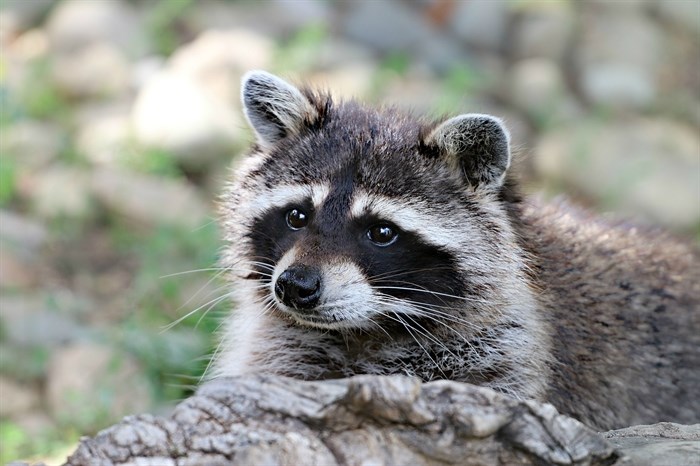
Image Credit: PIXABY
November 26, 2023 - 7:00 AM
Whether you refer to them as raccoons, masked bandits or trash pandas, these little critters are known across the continent for their craftiness and deceptively cute appearance.
To many, they’re a pain. However, to Lisa Lopez from WildSafeBC they are just “opportunistic omnivores”.
Due to their extremely varied diet, a lot of things can be food sources to raccoons. Which is why many people will have only encountered one while it's diving into a dumpster or brawling with their neighbour’s dog.
In their natural environment, raccoons are very skilled fishermen and have been known to catch crawfish, minnows and frogs in shallow streams and ponds, Lopez said. They are also impressive swimmers.
They catch prey and collect food with their sensitive and dexterous forepaws, which bear some similarity to human hands. This also what makes it possible for them to easily climbs trees get into places they’re not meant to be. According to WildSafeBC, they also have tactile hairs on their front paws which give them a highly developed sense of touch.
Their varied diets also make them good at controlling pests and they have been known to feed on invasive bugs, Lopez said.
According to WildSafeBC, wild raccoons have a short life span of just 3-5 years, but in captivity they can live up to 15. Their life is considerably tougher in the wild, as they are preyed on by coyotes, wolves, hawks, owls and bobcats. Their babies, called kits, of which they usually have two or three, are especially vulnerable to predators.
Raccoon's opportunistic nature means they can adapt to a range of environments, which is what brought them up into the Okanagan and predator-free urban areas.
“They span across North America,” Lopez said. “Into Mexico and throughout the United States, and they certainly are found on the south and eastern coast as well, and through some of our interior, middle provinces.”
Raccoons will feed on almost anything they can get their paws on, which means it’s important for residents to secure any food sources, according to Lopez. Whether that’s garbage cans, bird feeders or fruit trees, steps should be taken to avoid any human-animal conflict.
“We always term it as human wildlife conflicts because… humans play a significant role,” Lopez said. “Most wildlife and animals are going to avoid any kind of human activity because… we are not their favourite thing to encounter. So typically, they're trying to avoid us.”
According to Lopez, raccoons are actually shy, nocturnal creatures. They only become an issue when they get acclimatized to human activity and find a reliable urban food source.
“We definitely do play a big role in bringing not just raccoons, but other animals into our communities,” Lopez said. “If we manage those attractants better… they wouldn't find what they needed, and they'd go somewhere else.”
A lot of people aren’t aware of the problems raccoons can cause until they experience it themselves, Lopez said.
“If you can just do that one more step on securing things, then you won't ever have that encounter, which is much better than having something and then having to deal with the aftermath of that,” she said.
And human-raccoon interactions bring a whole host of problems. For a start, pets left outside that encounter racoons can get in aggressive fights. This becomes more a problem when raccoons are human-habituated which can make them bolder and more aggressive.
Racoons are also known to carry parasites. According to the WildSafeBC website a high percentage "can carry a roundworm parasite that is potentially dangerous to humans and care should be taken in dealing with faeces left by raccoons”.
Raccoons have also been known to carry rabies but, according the WildSafeBC, no cases have been found yet in BC.
As long as we keep them out of our backyards, we can continue to enjoy them as a cute addition to BC's treasure chest of wildlife.
More information about racoons can be found on the WildSafeBC website here.
To contact a reporter for this story, email Georgina Whitehouse or call 250-864-7494 or email the editor. You can also submit photos, videos or news tips to the newsroom and be entered to win a monthly prize draw.
We welcome your comments and opinions on our stories but play nice. We won't censor or delete comments unless they contain off-topic statements or links, unnecessary vulgarity, false facts, spam or obviously fake profiles. If you have any concerns about what you see in comments, email the editor in the link above. SUBSCRIBE to our awesome newsletter here.
News from © iNFOnews, 2023